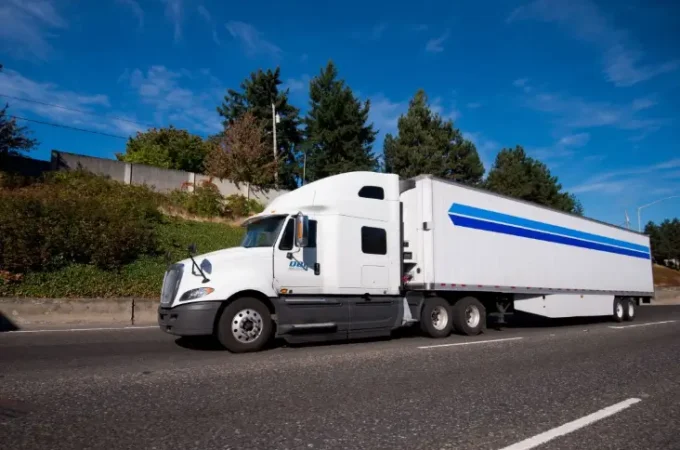
What is a Care Leaver: A Complete Guide
Introduction
In the intricate tapestry of the foster care system, the term “care leaver” holds profound significance. This comprehensive guide aims to unravel the layers surrounding care leaving, providing insights into the definition, historical background, challenges, and support systems for individuals who have aged out of foster care.
Background
To understand the term “care leaver,” we must delve into the historical context of care leaving. The evolution of child welfare and foster care systems has shaped the experiences of those who navigate the transition to independent living after spending their formative years in care.
According to statistics from the U.S. Department of Health and Human Services, over 20,000 young people age out of the foster care system annually in the United States alone. This underscores the urgency of comprehending the unique challenges faced by care leavers and the need for robust support systems.
Who Qualifies as a Care Leaver?
Care leavers are individuals who reach adulthood without being adopted or reunited with their biological families after being in the foster care system. The age at which one becomes a care leaver varies by jurisdiction but typically ranges from 18 to 21 years old. This transition often involves leaving a structured environment, facing the complexities of adulthood without familial support.
Challenges Faced by Care Leavers
The journey for care leavers is marked by a myriad of challenges. Emotional struggles stemming from a lack of stable family relationships can impact mental well-being significantly. According to one report given by the Annie E. Casey Foundation, nearly 30% of former foster youth experience post-traumatic stress disorder (PTSD), emphasizing the critical need for mental health support.
Educational obstacles are another hurdle. The lack of consistent academic support and frequent changes in schools can impede educational attainment. Studies by the Jim Casey Youth Opportunities Initiative reveal that only 50% of foster youth complete high school by the age of 18.
Transitioning to independence presents yet another challenge. Many care leavers face issues such as homelessness and unemployment due to a lack of familial support networks. The combination of these challenges makes it imperative to address the specific needs of care leavers as they navigate adulthood.
Support Systems for Care Leavers
Governments, non-profit organizations, and community initiatives play pivotal roles in creating support systems for care leavers. Government programs, such as extended foster care services, provide financial and housing assistance to help ease the transition. Non-profit organizations like FosterClub and Casey Family Programs offer mentorship programs, educational resources, and advocacy to empower care leavers.
Community initiatives, ranging from local support groups to nationwide campaigns, contribute to building a network of understanding and assistance for care leavers. The National Independent Living Association, for example, focuses on enhancing the skills and self-sufficiency of care leavers through various programs and initiatives.
Success Stories
Despite the challenges, numerous care leavers have defied the odds and achieved remarkable success. The stories of individuals who have overcome adversity serve as beacons of hope. For instance, Jasmine, a care leaver, became a successful entrepreneur and now mentors others in similar situations. These success stories highlight the resilience and potential within the care leaver community.
Legal Rights of Care Leavers
Recognizing the unique circumstances of care leavers, legal frameworks exist to protect their rights. In the United States, the Fostering Connections to Success and Increasing Adoptions Act extends support for care leavers up to the age of 21, providing access to services such as housing assistance and educational support. Advocacy for the enforcement and expansion of such legal protections is crucial in ensuring care leavers receive the necessary support.
Mental Health and Care Leaving
The impact of care leaving on mental health is a critical aspect that requires attention. Beyond PTSD, care leavers may experience depression, anxiety, and a sense of isolation. Access to mental health resources, counseling, and peer support programs can significantly contribute to addressing the mental health challenges faced by care leavers.
Education and Care Leavers
Despite the challenges, there are educational opportunities and resources available for care leavers. Scholarships and grants specifically designed for individuals with a history of foster care can facilitate access to higher education. Organizations like the Foster Care to Success provide comprehensive support, including scholarship programs, to help care leavers pursue their academic goals.
Breaking Stigmas Surrounding Care Leavers
Common misconceptions surrounding care leavers often contribute to stigmas. It is crucial to dispel these myths and promote a more nuanced understanding of their experiences. By challenging stereotypes and fostering empathy, society can create a more inclusive environment for care leavers.
Building a Supportive Community
Creating a supportive community involves active participation from society. By promoting understanding, empathy, and inclusivity, communities can become safe spaces for care leavers. Encouraging open dialogue and awareness campaigns contributes to breaking down barriers and fostering a sense of belonging.
Employment Challenges and Solutions
Care leavers often face challenges in entering the job market. The lack of stable familial networks and educational setbacks can hinder their employment prospects. Initiatives focused on vocational training, mentorship programs, and workplace accommodations are essential in addressing these challenges and providing care leavers with meaningful employment opportunities.
Empowering Care Leavers
Empowering care leavers involves fostering self-advocacy and building resilience. Recognizing their strengths, capabilities, and potential contributes to a sense of empowerment. Mentorship programs and peer support networks play crucial roles in helping care leavers navigate challenges and build a foundation for success.
Conclusion
In conclusion, the term “care leaver” encapsulates a complex journey marked by challenges, resilience, and the pursuit of independence. Empathy and support from both the legal system and society at large are pivotal in ensuring care leavers can thrive despite their unique circumstances.
FAQs
- What does the term “care leaver” mean?
- A care leaver is an individual who has aged out of the foster care system without being adopted or reunited with their biological family.
- Are all care leavers adults?
- Yes, care leavers typically reach adulthood without being placed in a permanent family.
- What kind of support do care leavers receive?
- Care leavers receive support from government programs, non-profit organizations, and community initiatives to assist them in their transition to independent living.
- How can society contribute to the well-being of care leavers?
- Society can contribute by promoting understanding, empathy, and inclusivity, and by providing support through various channels.
- Where can care leavers seek assistance?
- Care leavers can seek assistance from government agencies, non-profit organizations, and community resources dedicated to supporting individuals who have aged out of the foster care system.
Visit our website for more. Click here: “Quick Trend Insights“.





